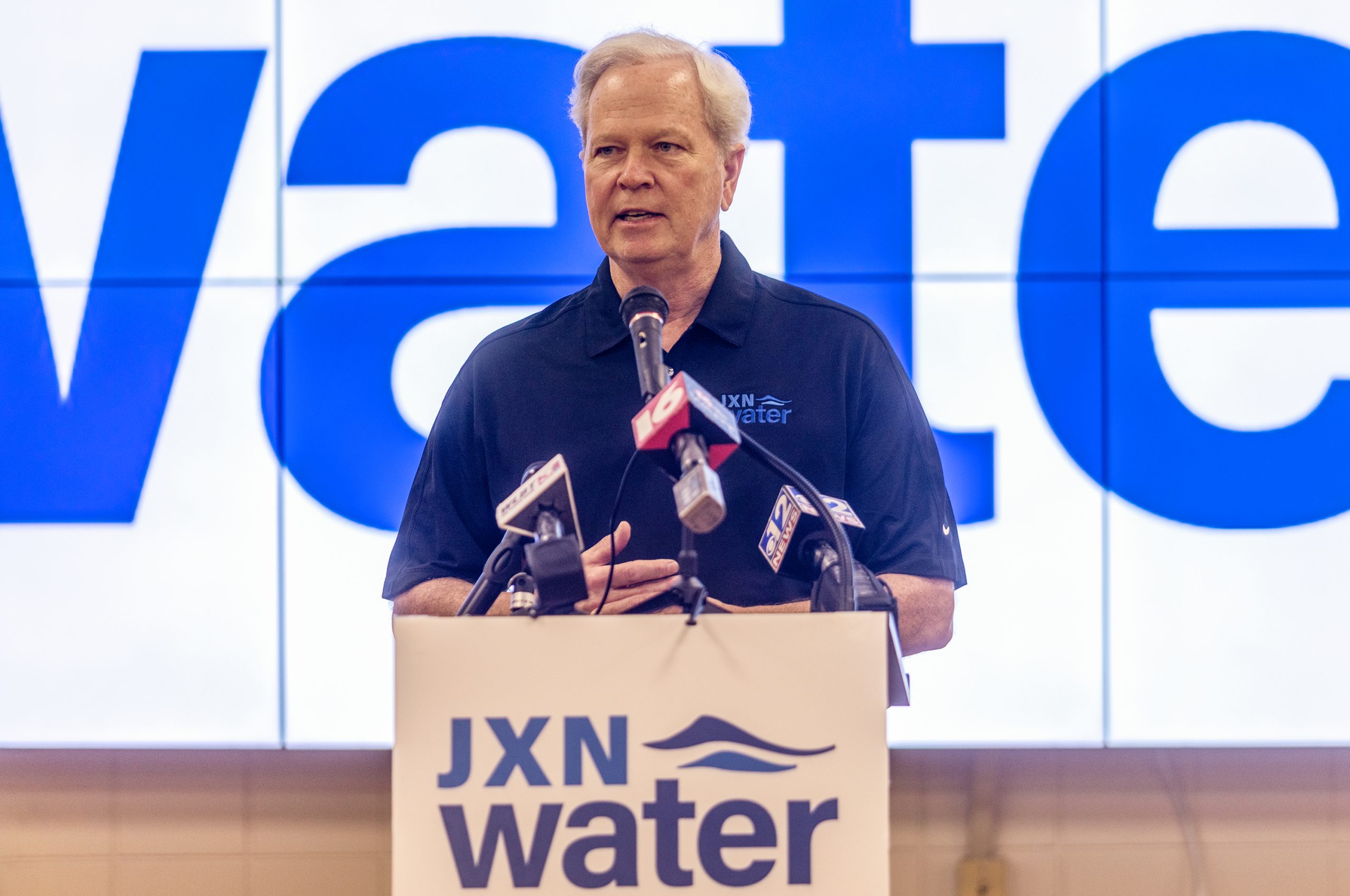[ad_1]
The Mississippi State Department of Health issued a citywide boil water notice for Jackson on Thursday morning after finding E.coli during its monthly sampling, however the city’s water manager quickly questioned the test results, saying they’re likely a false positive.
Each month, the city has to send 120 samples from around Jackson to the Health Department’s lab, which tests the samples for contaminants including E.coli. E.coli is a bacteria that’s commonly found in feces. Most of it are harmless, according to the Environmental Protection Agency, but some can lead to sickness such as vomiting and diarrhea.
JXN Water, the city’s third-party water manager, submitted its monthly samples to MSDH on Wednesday. The state agency responded Thursday morning that two of the samples showed positive results for E.coli.
That afternoon, JXN Water’s Ted Henifin called the results “highly suspect” for a number of reasons. For one, he said, JXN Water has a chlorination and disinfection process to get rid of bacteria like E.coli, and no previous samples have shown E.coli since the third-party manager took over in late 2022.
Another reason for suspicion, Henifin added, was that MSDH also reported finding E.coli in samples from neighboring Flowood, also on Thursday.
“Having positive results from any system, Jackson’s in particular, or any throughout the state, is fairly unusual,” he said during a press conference. “Having two positives from two different water systems on the same day, analyzed at the same time, seems highly suspect.”
Jacobs Solutions, which JXN Water contracts to staff the city’s treatment plants, also collects the samples around Jackson that get sent to MSDH. Yvonne Mazza-Lappi, Jacobs’ director of Drinking Water Compliance, said that there are a number of ways MSDH’s testing could have yielded a false positive.
“How they’re doing their testing and how they’re sterilizing and so forth… if those precautions are not done, we know there’s human error in there,” Mazza-Lappi said, adding that improper equipment handling — such as with control samples that contain E.coli — could lead to cross-contamination.
Jacobs also went to the sample locations where the positive results came from, she said, and found that there was enough residual chlorine at the locations that “we should have never seen a total coliform or E.coli positive.”
The earliest JXN Water could lift the boil water notice is likely Monday, Henifin said. He explained that the city has to have two consecutive days of negative test results from its water samples, and then also allow time for the state lab to analyze the samples. He added that he was confident that the next round of testing will show no levels of E.coli.
Henifin also criticized MSDH as being “overly conservative” for issuing the boil water notice, instead of going back and validating the test results.
In 2016, Mazza-Lippi said, the EPA revised its rules to allow a water system to retest sample locations that show positive results for total coliform or E.coli, and to do so before issuing a boil water notice. JXN Water requested that MSDH allow it to retest the samples before issuing the notice, but the agency declined, Henifin said.
The lab at the MSDH is the only EPA-certified lab in Central Mississippi, he added, and that the next closest one is in Purvis, about two hours away.
Henifin was frustrated with the impact the notice would have on trust among residents, something that has suffered for years with the city’s decades-long water crisis.
“There will be a number of people who will no longer drink tap water as a result of this, and they won’t be just in Mississippi,” he said. “So yeah, this is tragic. We took it very personally and we’re doing everything we can. Our poor restaurants and businesses that depend on water, they were just coming out of this PTSD around regular citywide boil water notices and starting to feel confident.”
Henifin clarified that, despite his belief that the test results were likely false positives, that Jacksonians should follow MSDH’s notice until JXN Water can get it lifted.
In response to JXN Water, the Health Department said in a statement Thursday afternoon that it didn’t believe the results were false positives.
“Officials in the (MSDH Public Health Laboratory) do not believe there was any contamination of the samples while in the lab and the results are not false positives,” the agency said. “MPHL leadership staff has done a preliminary review of the lab protocols related to these results and are confident in their validity.”
The last citywide boil water notice was issued a little over a year ago on Christmas day in 2022, after cold weather again impaired Jackson’s distribution system. JXN Water said it will hold a press conference on Friday to show steps of how to prepare for the expected cold temperatures early next week.
The Jackson boil water notice affects 188,723 customers, according to MSDH. The Flowood notice affects 27,997 customers. On Wednesday, MSDH also issued boil water notices to 713 customers in Jackson County, and 742 customers in Amite County, both of which were due to a loss of pressure in the systems. Visit MSDH’s website for instructions on what to do during a notice.
[ad_2]
Source link

